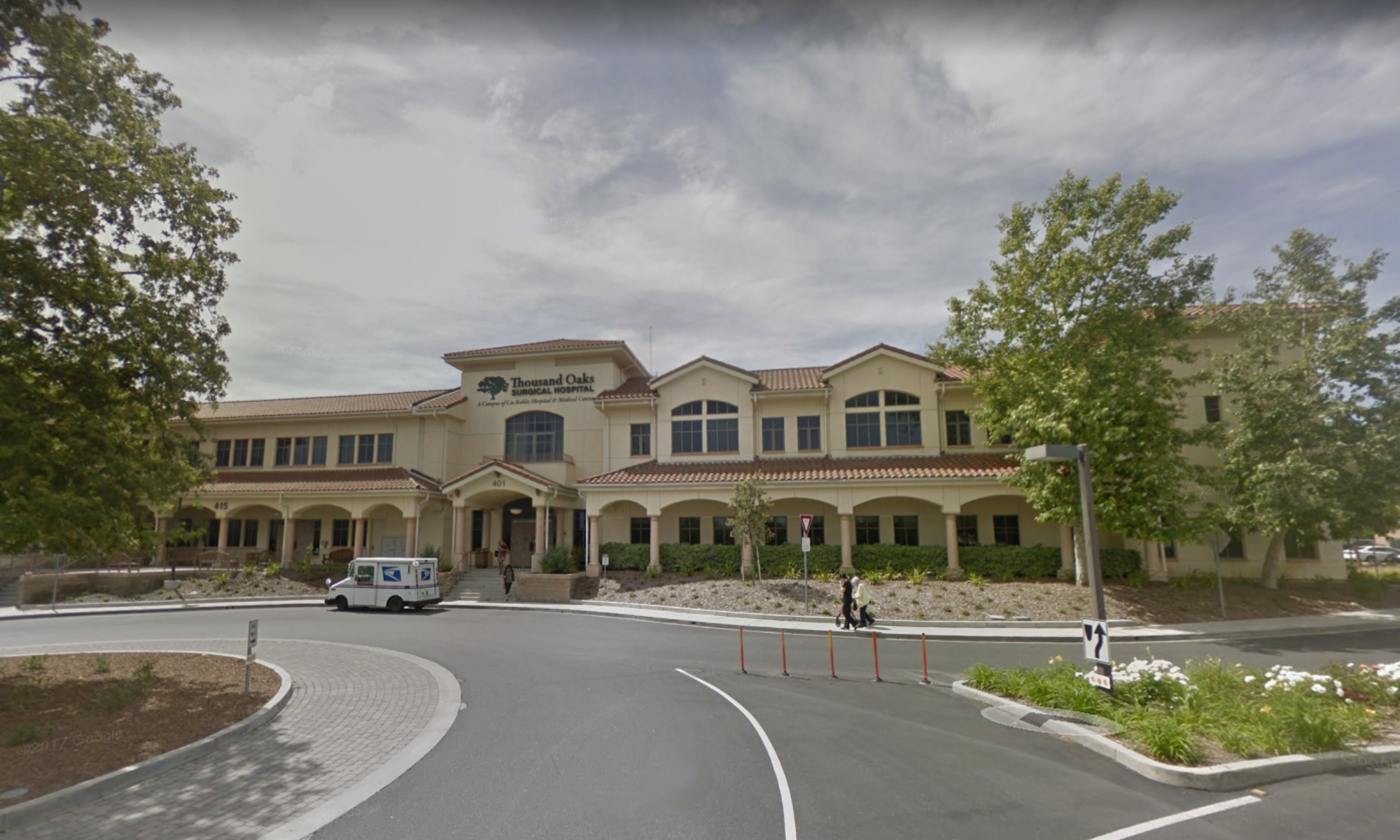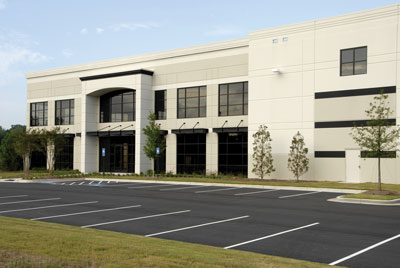Why Covid Has Made Commercial Leasing Better for a Tenant
If you are an existing tenant or a potential tenant considering leasing commercial (office and retail primarily) space, COVID has created some good leasing benefits in your favor. Many tenants are missing out on these benefits because they aren’t aware of them or don’t know how to get them. They won’t last forever, so the sooner you make a deal the better.
One of the main benefits for commercial tenant leasing space is a lower rent and/or more tenant concessions (free rent, improvement allowance, moving allowance, etc.). Landlords vary quite a bit on how they will give a tenant a credit here and it really many times depends on whether the landlords want quick cash flow or want a higher resale value. You have to find out what the landlord’s goal is before you start negotiating to get your best deal. A landlord that wants quick cash flow will usually give you a lower rent. A landlord that wants a higher property value will usually not lower the asking rent much, but will instead give you free rent and more tenant improvements and other similar types of concessions.
Another COVID lease benefit that favors a tenant is the lease language itself. Landlords are more open to clauses that favor tenants like not having to pay rent if COVID continues to shut down a tenant’s business or even cause less income for a tenant’s business.
I have found that if a lease is carefully and artfully negotiated, a tenant at this time will pay less than before COVID started by a quite a bit. This is especially true in the first year of the lease since the landlord knows the space he has might sit vacant for another year or more without a tenant.
Each situation is unique and needs to be figured out carefully. A tenant will do best if they hire an experienced broker to help them; a tenant should not negotiate on their own. I have negotiated many leases since COVID occurred and in my 35 plus years of negotiating commercial leases, I have not seen such favorable tenant terms. If you would like to find out how you can save money on your next lease, please contact me as follows:
David Massie
DJM Commercial Real Estate
805-217-0791
Round Three: Commercial Tenant Lease Options During COVID – Save Money By Terminating Your Lease Early
Are you currently a tenant leasing space in a commercial (retail, office, industrial usually) property with your business suffering significant losses? If so, do you want to know what your options are and what you should be doing about it now and in the future?
This is the third part of a series of articles I will be writing on this subject so make sure to tune in for the rest in the future. The first article covered the pros and cons of subleasing and assignment. The second had to do with not paying rent. The next article will cover what to do if you are in a lawsuit with your landlord and in particular, the “frustration of purpose” defense. This third article in the series deals with how to terminate your lease early and save a lot of money doing so.
I have written on the subject of terminating your lease early but would like to point out some notable updates. Click here to view this original, relevant blog.
Normally when you terminate a lease early, you restore legal possession of the premises to your landlord, and thereafter, your landlord has an obligation to mitigate your damages. In my experience and opinion, “mitigating your damages” usually equals 6-12 months of your then-current rent. This is the amount of time normally awarded by a court to a prevailing legal party. It doesn’t matter if you have a 10 year or longer lease, the award is the same. So, usually, a tenant can simply reduce what they owe dramatically by restoring legal possession of the premises to their landlord. Although it’s unclear how COVID is going to affect this 6-12 month rent period and if the courts are going to extend it because it’s probably going to take longer to find a new tenant to take your place. However, most of the time these types of cases settle and never make it to court as that saves both landlord and tenant time and money.
Most of the time the landlord doesn’t even sue the tenant for terminating its lease early and the tenant walks away paying nothing. Why? There are many good reasons: If the tenant doesn’t have enough assets worth pursuing; even if the tenant has enough assets but they are legally protected (in a trust, retirement account, principal residence tenant owns, etc.); because the landlord doesn’t blame the tenant for the government shutdown and/or COVID; because the landlord thinks it might cost more in time, money and energy to sue you than it’s worth; because the landlord might not win in court (if the courts decide that a “frustration of purpose” or other types of legal argument favors the tenant); or because it will make the landlord look bad if other tenants and brokers find out and then don’t want to do business with this landlord (because this wasn’t the tenant’s fault and/or they like the tenant).
Each situation is unique and needs to be figured out carefully if you want help making the right decision on how to handle what you should do regarding your commercial lease. I have settled these types of matters both as a landlord and tenant hundreds of times so I can assist you for a reasonable cost if you need help so please contact me if so as follows:
David Massie
DJM Commercial Real Estate
805-217-0791
Round One: Commercial Tenant Lease Options During COVID – Subleasing Your Unused Space
Are you currently a tenant leasing space in a commercial (retail, office, industrial usually) property with your business suffering significant losses? If so, do you want to know what your options are and what you should be doing about it now and in the future? This is the first part of a series of articles I will be writing on this subject so make sure to tune in for all of them shortly. Upcoming articles will cover: when not to pay rent to your landlord, when/how to terminate your lease early, and other relevant options.
Let’s start with what a tenant would normally do if they didn’t pick a course of action with any risks of legal action by the landlord, such as terminating a lease or not paying rent. Subleasing part of your space or assigning all of it are two viable options.
Under a sublease, you would lease part of your space and you are still the tenant, but become your new subtenant’s landlord which is called a “sublandlord”. You could also sublease all of your space, but this isn’t as common. You still pay your rent to the landlord normally, and you collect rent from your “subtenant” based on the agreement you have made between you and your subtenant. You and the subtenant can agree to pretty much whatever you want to on lease terms as long as it doesn’t violate the main lease between you and your landlord.
Subleasing sounds simple enough but here are some issues to consider that make it more complicated: a) The subtenant’s business use should be compatible with yours because if it isn’t, it could be very disruptive to your business; b) You should have a very good written sublease agreement prepared by a real estate attorney or possibly your commercial real estate broker if he is qualified and should try not to create or change the form on your own. This is because if something were to go wrong with the relationship, and the subtenant creates a problem (not paying, disruptive, etc.) you want to make sure you are on solid legal ground to evict them and make them pay for any damages they cause you; c) You should check out your subtenant’s criminal and financial background thoroughly just like your prudent landlord did with you and make sure you get enough security deposit and/or personal guaranty but get professional help when making this determination from a CPA or your commercial broker if he is qualified to do so; d) You should market your sublease space to reach the widest audience you can. This will usually require costs (advertising, commission, time, and energy) so it’s best to hire a commercial broker to do so as you simply will not have the same audience reach or expertise that the broker does and this broker will bring you more quality options than you can find on your own and lease your space faster.
Switching to an assignment works somewhat like a sublease but an assignment is normally done when leasing the entire space to someone new rather than just part of it like through a sublease. Your new replacement tenant is called the “assignee” and you become the “assignor”. The assignee pays rent to the landlord directly as opposed to paying you like the sublease example above. However, this assignee pretty much takes your place and assumes your existing lease without making changes to it, although it is still possible to have changes made, your landlord has to agree, and there normally isn’t an incentive for your landlord to do so. You remain on the hook under the terms of your original lease like a guarantor would, so if your assignee defaults on the lease and doesn’t cure it then you will be responsible to do so. This will result in you having to pay any rent difference each month to your landlord that your new assignee doesn’t pay if this assignee is paying less than you were.
Both of the above options normally require landlord approval so check your lease carefully in the applicable sections and make sure you do what it says. Your landlord can usually decline a request to sublease or assign your lease based on reasonable grounds. Reasonable grounds can be items like bad financials or a criminal record, too many employees, business use not compatible with other tenants in the building, etc.
Each situation is unique and needs to be figured out carefully but you have to know and consider all of your options so you can pick the best one. I have settled these types of matters both as a landlord and tenant hundreds of times so I can assist you if you need help so please contact me here:
David Massie
DJM Commercial Real Estate
805-217-0791
David Massie
SELL & LEASE YOUR COMMERCIAL REAL ESTATE FOR THE MAXIMUM PRICE

In my experience as an owner/landlord and broker of commercial real estate (“CRE”), most brokers hired to list office, retail, industrial or other types of CRE properties for sale or lease put up a “for sale” or “for lease” sign and list a property online at a couple of Commercial Real Estate (“CRE”) websites like Loopnet and CoStar. This passive approach waits for the interested parties to find the property by driving by it or searching for it online.
The passive approach discussed above, while necessary, is not the best way to sell or lease your property for the maximum price and/or fast as possible as it takes the least amount of effort by the broker. In some hot CRE markets with lots of demand and limited supply, this might be all that is required. However, even then you aren’t seeing all offers and might not be selling or leasing for the highest price or as fast as you could have. In conjunction with this passive approach, there are many other meaningful actions that can be performed but they take the knowledge that most brokers don’t have as well as time, energy and dollars that these brokers simply don’t want to invest.
One such action a broker can take is contacting your current client base (via LinkedIn, email, phone call, etc.) and even your personal contacts (via Facebook, Twitter, etc.) to see if they have any interest or know of anyone that does. The power of these contacts is not to be underestimated especially if you have strong business and/or personal relationships and have kept in touch with them. I have found the more personable broker that has a reputation for putting people first over making commissions and that specialize in certain cities or certain parts of larger cities know the local people that actually live and work in these areas. This helps them get more referrals to help them sell their listed properties faster. I recently received an office lease listing where a large national brokerage firm could not lease the space for 2 years but I was able to lease it in less than 30 days because of the aforementioned personal relationships and referrals to me from them.
Another action a broker can take is changing up the listing and flyer information periodically. I prefer doing this monthly but it does depend upon the property type and demand for it but at a minimum, I would recommend doing this quarterly. I recommend changing the listing and flyer to highlight different important property features and use different headers so interested parties that might have seen the original marketing information see new information that they might not have seen the first time. I recently received a new office lease listing that a large regional brokerage had tried to lease the space for years where the listing, flyer and other marketing information simply was never changed and I was able to make it better and have created new interest in the property with multiple offers coming in now.
To reiterate, there are many other actions a broker can take to help his client sell or lease their CRE for a higher price and/or faster but many brokers simply lack the knowledge, don’t want to invest the time (they might work for a big brokerage and be focused on volume rather than quality), don’t want to pay more for different listings other than what their company has access to, don’t have a good reputation, etc. And these are areas I have overcome as both an owner/landlord and broker for CRE and I can help you sell or lease your property in a better way.
If you have questions about selling, buying, or leasing CRE or have any other CRE needs, please contact David Massie at david@djmcre.com or 805-217-0791.
More Medical Tenants Leasing At Retail Locations.

In 2017, I had written a blog predicting that medical leasing in a retail center would be beneficial, and more prevalent in the future. This prediction has recently come true, as there is, in fact, a shortage of medical space available.
Bisnow article on the matter states:
“In the last three years, we [retail brokers] have done more medical deals in retail spaces than I have ever done previously in my career,” Franks said. “Additionally, we have done more specialty retail uses in traditional retail space than we ever have done before.”
From my previous blog on the topic, I stated that it would not only be good for a landlord to capture medical tenants and bring in potential new business for the other retail tenants in the center but also that it may bring in new patients for the medical tenants as well.
However, the main problem for medical tenants leasing at retail centers, particularly nice ones where they probably want to be most, is that the rent is usually higher than a nice medical building. Retail landlords don’t typically pay for the medical improvements needed for leased space as a medical building landlord would. Because of this, the medical tenant usually takes the cheaper way out and leases at a medical building. But what if leasing at the more expensive retail center brought in more income because of the retail exposure? If it more than covered the extra costs for rent and improvements, it should make it worth doing.
If you want help with leasing, buying or selling your commercial real estate, whether office, medical, dental, retail or warehouse/industrial space, contact David Massie of DJM Commercial Real Estate at david@djmcre.com or 805-217-0791.
How Retail Tenants are Saving on Rent Right Now
We recently read an article in Bis Now highlighting how small retailers are finding their opening while old giants shrink. The general premise is that retail landlords are willing, more and more, to take on smaller retailers by dividing up their spaces and leasing them out where they can instead of holding off for the big fish that probably isn’t coming.
From Bis Now:
“As the country’s largest retailers struggle to adapt to 21st century consumer demands, retail landlords are increasingly willing to slice up their space, take on riskier tenant options and offer flexible lease terms — and smaller retailers are reaping the benefits. […] The market has been marred with a number of big-name store closures in the city. But brokers said the conditions are paving the way for smaller retailers to get their foot in the door, as increasingly desperate landlords stop holding out for the national operators with established track records.”
This article is a great example of how a retail tenant can save on rent right now. Even better news? We can help. Contact David Massie at 805-217-0791 or david@djmcre.com if you are a retail tenant and you want to find a great deal on a retail space like mentioned in the article. For more details, read the full article here.
Potential Fix For Medical Space Shortage & Retail Vacancies in Southern California
There is a shortage of medical space and an increase in retail vacancies in southern California right now. So, why don’t medical tenants lease space in retail centers as compared to an office or medical building that they traditionally lease space in? Doesn’t this solve some of the problems for both types of spaces?
Some medical tenants such as optometrists, dentists, physical therapists, chiropractors, and a handful of others do lease space in retail centers. Why do they lease space in a retail center? Because they probably make more money when their businesses are in a quality retail center with good parking, signage, and retail visibility from shoppers at the retail center. The main criteria for any business is usually the bottom line so, if being in a retail center increases your net income, wouldn’t you want to be there? This is rule #1.
Sometimes the rent, improvements and other costs can be higher in a retail center, but not always. If you make enough additional income leasing at a retail center to offset this cost, then this objection isn’t a good one. Another objection might be that medical providers get more referrals from other medical providers that lease in the same medical building. This can also happen in a retail center if there are other medical providers there. They can still get referrals from outside the retail center from these medical providers that lease in the medical office buildings if they develop a relationship with them. It might not be the same, or potentially as many, referrals as the medical building scenario, but again, see rule #1 above. At which location are you making more net income? The referrals might not be the same as in the medical building scenario, but there might actually be more referrals in a retail setting because of the other retail tenants now referring you and the amount of potential customers a retail center has. This is especially true in comparison to a traditional medical building scenario which is much more limited in potential new customers finding you. Finally, it’s possible that some medical providers simply think their status will be somehow lowered by leasing space in a retail center and that a nice medical building is preferred by their patients. This might be true for some patients, but I would doubt most of them would care. If they are like me, they want their trip to the doctor to be the least painful as possible. Not to mention that a good retail center is much more fun than a boring medical building any day. I can see some types of medical users and their patients wanting it to be quieter than a retail setting, but again -doesn’t rule #1 above trump even that for most medical tenants?
Retail space in southern California is undergoing a change. The smaller to medium sized retail centers in particular are starting to become more restaurant/food and service focused as opposed to other types of retail uses. Customers at retail centers want to enjoy their experience and be able to do as much as they can at one location. So, with the foregoing in mind, wouldn’t many medical tenants fit in with this new retail trend of a retail landlord leasing to service providers like doctors and providing a better experience for the retail customer? I think so.
If you want to learn more about leasing, buying and/or selling any and all types of commercial spaces or if you have questions about any subject related to commercial real estate, please contact me at david@djmcre.com or 805-217-0791.
Round 2: What Tenants & Landlords Should Know About Operating Expenses/NNN
In my last article on operating expense and NNN pass throughs in a lease, we looked at how expensive and unreasonable it is to require a tenant to pay its share of an insurance policy with a large deductible such as with an earthquake policy.
This month, we look at another expense that is commonly passed through to tenants where landlords pad the numbers in their favor: Property Management Fees.
Why should a tenant pay a landlord, or the landlord’s property manager, to manage their property as part of operating expenses? And, even if a tenant does have to pay their share of this fee, shouldn’t the fee be based upon the amount of hours actually spent managing the property?
The short answers are that the tenant really should not have to pay a landlord to manage the landlord’s property. This should be included in the rent. But it is almost always added. And the amount of the property management fee should be reasonable and bear a relationship to the hours actually spent working on the property. Unfortunately, it usually doesn’t reflect that as most management fees are instead based on a % of the total revenue collected at the project. This fee is usually much higher than it should be, especially compared to the actual hours spent managing the property.
What is a tenant to do? How can a tenant get the landlord to be reasonable here? That’s where I come in. Having directed some very large landlord companies for over 25 years has given me great insight into how to help a tenant in this area.
This is just one of many examples of operating expenses/NNN a tenant is exposed to in most leases. Most tenants, and even landlords, don’t really understand this particular issue until it happens and it’s too late. Stay tuned for my next blog with more examples and even some savvy advice for landlords on my recommendation on how to negotiate the leases in this area. I also have advice on how to calculate these expenses correctly so you don’t end up losing the tenant at renewal time and/or get into expensive litigation over this matter.
If you are a tenant or landlord and want to find out how to avoid pitfalls related to leasing, buying, or selling, please contact me. I have in depth experience and knowledge in these areas including operating expense/NNN audits related to commercial properties.
What Every Tenant & Landlord Should Know About Operating Expense/NNN
So, you are a tenant that just signed an office, retail or industrial lease. And, as part of that lease, you agreed to pay your share of operating expenses/NNN. This may be a direct share or just increases over the base year when the lease term began. This is normal and happens in most commercial leases.
However, what varies is what expenses each landlord includes in their operating expenses/NNN and how they calculate them. If you don’t negotiate this part of the lease correctly, your financial exposure can be way more than all of the rent you pay over your entire lease term and could even potentially bankrupt you.
One such example has to do with insurance policy deductibles. Most leases require you as the tenant to pay your share of such a deductible if there ever is a claim. Sounds reasonable and normal, right? But what if it’s for an earthquake policy where the deductible is 20% of the entire project value? This is the normal deductible carried by landlords for this type of insurance policy. This could cost you tens to hundreds of thousands of dollars because you have to pay your share of this expense.
Here’s an example. Let’s suppose you lease just 5% of a building. If the entire project is worth 10 million dollars then the deductible on most earthquake insurance policies will be 20% of that or, in this example, 2 million dollars. Your share of this is 5% x $2,000,000 = $100,000. How would you, as the tenant, like to have to pay this amount in a lump sum suddenly after an applicable insurance claim was made by the landlord? Especially when your rent is only $5,000 per month to begin with?
This is just one of many examples of operating expenses/NNN a tenant is exposed to in most leases. And most tenants and even landlords don’t really understand this particular issue until it happens and it’s too late. Stay tuned for my next blog with more examples and even some savvy advice for landlords on my recommendation for how to negotiate the lease in this area and calculate these expenses correctly so you don’t end up losing the tenant at renewal time and/or get into expensive litigation over this matter.
If you are a tenant or landlord and want to find out how to avoid pitfalls related to leasing, buying, or selling, please contact me as I have in depth experience and knowledge in these areas including operating expense/NNN audits related to commercial properties.






